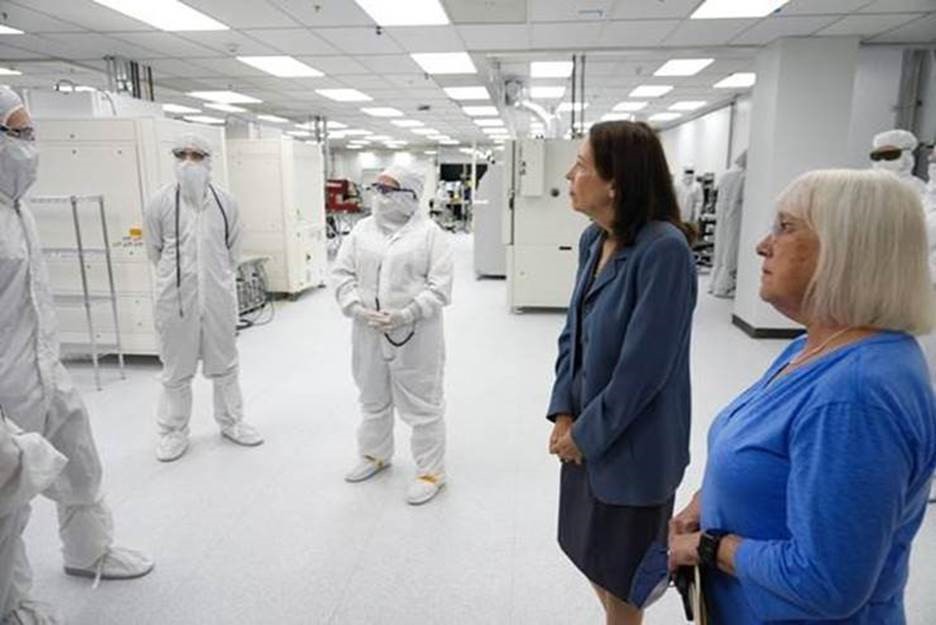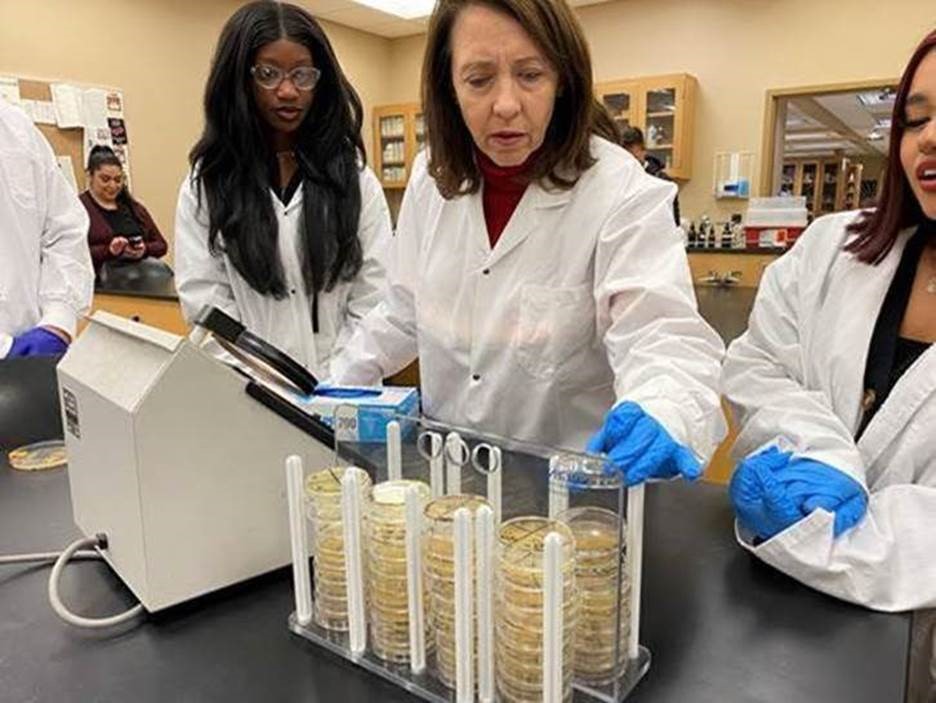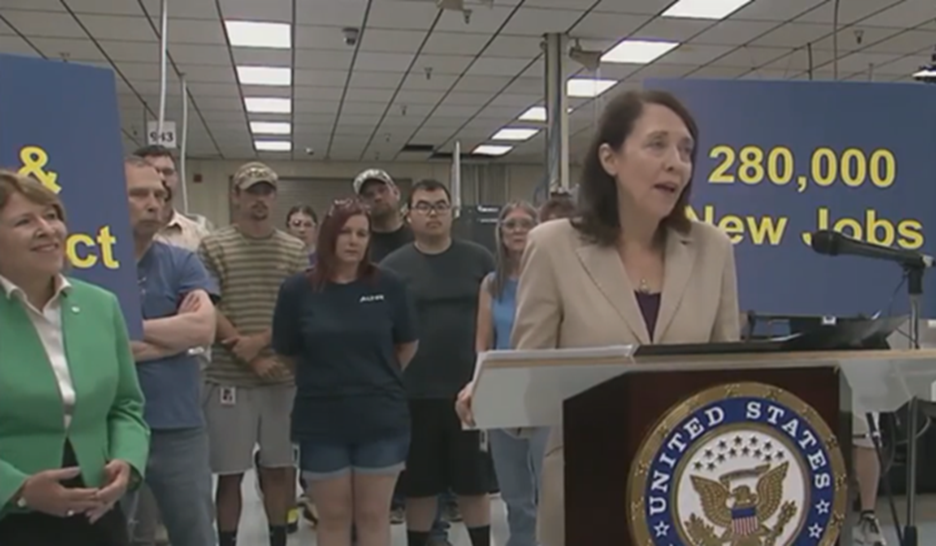$35M award to help modernize timber and maritime industries, provide more jobs for prime-working-age residents
WASHINGTON, D.C. – U.S. Senator Maria Cantwell (D-WA), chair of the Senate Committee on Commerce, Science, and Transportation and chief architect of the CHIPS & Science Act, today celebrated the two-year anniversary of the law designed to invest in vital, cutting-edge research, bolster the nation’s tech leadership and spur American innovation everywhere from big cities to small towns.
This week, Sen. Cantwell announced a major CHIPS & Science Act investment for the Olympic Peninsula. The Recompete pilot program will invest $35M for community-driven initiatives to revive and modernize the region’s traditional timber and maritime economies.
“This award is a powerful vote of confidence in the potential of Olympic Peninsula communities,” said Senator Cantwell at the time of the announcement. “By building off the region’s history and expertise in the marine and timber industries, and a decade of innovation in new materials like CLT and composites, this federal investment will help launch new products our economy needs for commerce and defense while growing the local manufacturing workforce. Today’s announcement demonstrates the promise of the CHIPS & Science Act to support innovation and job creation in key sectors all across Washington and the nation.”
Elsewhere in Washington state the passage of CHIPS & Science is resulting in significant investments.
- The NSF’s Directorate for Technology, Innovation and Partnerships (TIP), a Cantwell-sponsored initiative, has awarded more than $30 million to Washington state entities, including private-sector tech startups. More than $16.9 million in awards have been made to the University of Washington.
- Spokane’s American Aerospace Materials Manufacturing Center was named the U.S. Tech Hub for aerospace materials manufacturing. “Winning this designation to be one of the first CHIPS & Science tech hubs raises a banner over the region saying that the U.S. is all-in on Spokane’s potential to generate new discoveries and new jobs,” said Sen. Cantwell at the time.
- Four National Science Foundation Regional Innovation Engines have been awarded to the Pacific Northwest, receiving a total of $3.9M in funding. “With this announcement, we’re on our way toward the ultimate goal of the CHIPS & Science Act: for companies and universities to translate their scientific discoveries out of the lab and into the real world,” said Sen. Cantwell of the announcement.
- In the Silicon Forest of Southwest Washington and Portland, six high-tech manufacturers have announced expansions, including SEH in Vancouver and Analog Devices in Camas, according to the Semiconductor Industry Association.
Nationally, the federal government’s recommitment to R&D has spurred more than $300 billion in total public and private technology investments, supporting more than 115,000 jobs in direct manufacturing and construction.
Now, all five major leading-edge semiconductor manufacturers are producing chips in the United States.
And more than $30 billion in direct federal funding has been awarded under CHIPS & Science, including:
- $1.1 billion in NSF TIP awards
- $504 million for 12 Tech Hubs
- $184 million for Recompete awards
- $150 million for Regional Innovation Engines
Sen. Cantwell was appointed Chair of the 107-member Conference Committee to negotiate the legislation and successfully negotiated and rallied a last-minute bipartisan push to secure the inclusion of historic science research and development investments. The CHIPS & Science Act passed the Senate 64-33 on July 27, 2022, and the House one day later. Sen. Cantwell joined President Biden for the bill signing on Aug. 9, 2022.
While crafting this legislation, Sen. Cantwell used the State of Washington as an example for her Senate colleagues, showing how the state has a thriving innovation ecosystem because of investments in technology and education.
Chip Workforce in Clark County

In August 2022, Sen. Cantwell and U.S. Senator Murray (D-WA) toured technology company nLight in Camas, Wash., to see chip manufacturing workforce opportunities firsthand. The greater Portland region supports over 30,000 jobs in computers and electronics, with over 2,800 jobs in semiconductor and related device manufacturing in Clark County alone.
STEM Education in Yakima

In November 2022, Sen. Cantwell discussed STEM education opportunities and new federal funding for programs for first-generation college students in the CHIPS & Science Act with Yakima Valley Community College (YVCC) students. YVCC has successfully competed for NSF funds in the past. In 2016, the school received a $448,000 NSF to establish its New Scientist Training program, which provided scholarships, mentorship, and hands-on research opportunities to 52 low-income and first-generation students. Washington schools like YVCC are eligible for NSF funding from the CHIPS & Science Act.
Manufacturing Near Spokane

In August 2022, at the Altek Manufacturing facility in Liberty Lake outside of Spokane, Wash., Sen. Cantwell talked about how the CHIPS & Science Act boosts small towns’ ability to create the next innovation. Eastern Washington is already a candidate for a university research center and could be competitive for manufacturing innovation centers or regional technology hubs enabled by the CHIPS & Science Act, each of which aims to nurture locally-driven innovation regions like Spokane.
Quantum Computing in Bothell
.png)
In February 2024, Sen. Cantwell visited quantum computing company IonQ for a press conference, ribbon cutting, and tour to celebrate the grand opening of the company’s newly-expanded Bothell location. She talked about the potential for the Pacific Northwest to become the “Quantum Valley” for the nation. The NSF’s new Tech Directorate program focuses on translational science in 10 key developing areas, including quantum technology.
Artificial Intelligence Roundtable
.png)
Also in February 2024, Sen. Cantwell hosted U.S. Secretary of Energy Jennifer Granholm for a roundtable with tech and science leaders to discuss how artificial intelligence can help the U.S. meet a range of national challenges, including sustainability. Artificial intelligence is another of the 10 key priorities for the NSF Tech Directorate.
###

